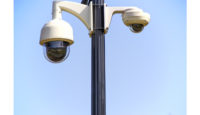ONVIF recently reinstated full participation by Hikvision and Dahua in the global open industry forum, which provides and promotes standardized interfaces for effective interoperability of IP-based physical security products.
The two China-based video surveillance manufacturers, along with other global technology providers such as Huawei, were suspended by ONVIF in October 2019 after landing on the Commerce Department's Bureau of Industry and Security (BIS) Entity List. The U.S. government placed almost 30 state security bureaus and tech companies in China on the blacklist over concerns about their role in human rights violations and potential threats to U.S. national security. The blacklisting reduced the companies access to critical U.S. suppliers and barred them from participating in the work of U.S. standardization groups.
The ONVIF members on the Entity List lost certain privileges — namely access to the ONVIF test tools that are required to submit products for ONVIF conformance — as a result of the blacklisting. The reinstatement decision by ONVIF follows recent revisions to the federal Export Administration Regulations (EAR) to authorize the release of certain technology and software in the context of standards setting and development in standards organizations.
The loosening of restrictions on the sharing of technology by blacklisted companies was announced by the Commerce Department, in coordination with the National Institute of Standards and Technology (NIST), on Sept. 8. The rules change was intended to assuage industry concerns that U.S. companies were discouraged to fully participate in international standards development efforts over fears they could be unintentionally violating U.S. export controls, especially if representatives from organizations on the Entity List were present.
There were also concerns that a reduced presence by U.S. organizations in standards-setting activities could give a competitive edge to those Chinese companies taking a bigger role in technical groups that determine the way technology is designed and applied globally.
In the Sept. 8 announcement, Under Secretary of Commerce for Industry and Security Alan Estevez said the rule change provides much needed clarification to U.S. industry and other organizations that will allow for continued U.S. leadership in these technical groups.
“U.S. stakeholders need to be fully engaged in international standards organizations, particularly where the critical but sometimes invisible standards that they set have important national security as well as commercial implications,” Estevez said.
Along with Hikvision, Dahua and Huawei, the following companies included in the BIS Entity List have also had their full ONVIF participation reinstated:
- Kedacom International Pte Ltd.
- Lorex (acquired by Dahua in 2018)
- Shanghai Yitu Technology Co. Ltd.
- Unitedcctv LLC (a Hikvision affiliate)
Hikvision and Dahua have consistently denied they pose a threat to the U.S.
In a statement provided to SDM, ONVIF said it follows the laws of the U.S. and therefore reinstated the companies’ full memberships after the federal government adjusted terms of the sanctions. The statement reads:
“ONVIF membership is open to any company or interest group at the observer, user, registered affiliate, contributing, or full membership level. Effective September 2022, changes in U.S. law allow companies on the U.S. Department of Commerce, Bureau of Industry and Security, Export Administration Regulations Entity List to participate fully in ONVIF. This includes participating in working groups and committees and submitting products to the ONVIF Conformant Product program.”



